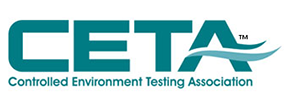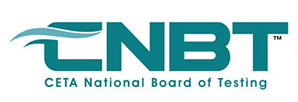Experience you can count on.
Certification by ATC is about more than just compliance. It’s peace of mind.

Trace Gas Monitoring
Monitoring for OSHA compliance for exposure to gasses/organics utilizing spectrometry for real time monitoring and results. Gasses include formaldehyde, xylene, ETO.

HEPA Filtered Systems
Laminar Flow Clean Benches
In-line HEPA Systems
HEPA Filter Supply/Exhaust Housings
Other HEPA Filter Devices

Cleanroom Testing and Certification
Testing to:
ISO 14644-1
USP 797
FS 209E
ATC utilizes CETA™ registered cleanroom certification professionals

Chemical Fume Hood Testing
Testing to:
ASHRAE 110-1995
ANSI Z 9.5
SEFA 1-2002
Other standards may also apply.

Class I, II and III BSC
Biosafety Cabinet Testing and Certification
Biological safety cabinets [BSCs] are certified to meet NSF-49, OSHA, NIH/CDC, and the manufacturer’s specifications.
Trusted all over the world.
ATC is a fully certified and accredited provider.
Industry Guidelines
Our focus at Advanced Testing and Certification is testing and certifying controlled environments.
ATC utilizes state of the art equipment for testing and employs highly trained certified test engineers. ATC’s goal is to ensure quality in every job we do by utilizing current Good Manufacturing Practices (GMP) in all of our testing and documentation.

“Good Manufacturing Practices” or “GMP” are guidance that outline the aspects of production and testing that can impact the quality of a product. Many countries have legislated that pharmaceutical and medical device companies must follow GMP procedures, and have created their own GMP guidelines that correspond with their legislation. Basic concepts of all of these guidelines remain more or less similar to the ultimate goals of safeguarding the health of the patient as well as producing good quality medicine, medical devices or active pharmaceutical products. In the U.S. a drug may be deemed adulterated if it passes all of the specifications tests but is found to be manufactured in a condition which violates current good manufacturing guidelines. Therefore, complying with GMP is a mandatory aspect of pharmaceutical manufacturing.
Class I, II and III BSC
Biosafety Cabinet Testing and Certification
ATC utilizes NSF® certified technicians for testing biological safety cabinets.
ATC offers comprehensive testing, certification, and repair of biological safety cabinets. Our skilled technicians are authorized to perform warranty repairs for all major equipment manufacturers. All testing is performed in accordance with established ATC standard operating procedures [SOPs], which are updated to remain compliant with federal and international safety guidelines, current good manufacturing practices [cGMPs], and quality assurance systems.
Biological safety cabinets [BSCs] are certified to meet NSF-49, OSHA, NIH/CDC, and the manufacturer’s specifications.
Primary Tests:- Inflow velocity measurements – assures that a safe inflow is maintained to protect the operator from the product, as well as the product from outside contamination
- Downflow velocity measurements – documents that the air in the work area is unidirectional and functioning as designed, preventing cross contamination
- HEPA filter integrity testing – tests filters and the system for leakage or defects
- Airflow visualization testing – qualitatively verifies airflow direction using a source of visible fog or smoke
- Site installation testing and alarm calibration – assesses appropriate procedures for the installation of units for NSF and OSHA compliance
Although there are a number of them, all guidelines follow a few basic principles: Manufacturing processes are clearly defined and controlled. All critical processes are validated to ensure consistency and compliance with specifications. Manufacturing processes are controlled, and any changes to the process are evaluated. Changes that have an impact on the quality of the drug are validated as necessary. Instructions and procedures are written in clear and unambiguous language. (Good Documentation Practices) Operators are trained to carry out and document procedures. Records are made, manually or by instruments, during manufacture that demonstrate that all the steps required by the defined procedures and instructions were in fact taken and that the quantity and quality of the drug was as expected. Deviations are investigated and documented. Records of manufacture (including distribution) that enable the complete history of a batch to be traced are retained in a comprehensible and accessible form. The distribution of the drugs minimizes any risk to their quality. A system is available for recalling any batch of drug from sale or supply. Complaints about marketed drugs are examined, the causes of quality defects are investigated, and appropriate measures are taken with respect to the defective drugs and to prevent recurrence.
GMP guidelines are not prescriptive instructions on how to manufacture products. They are a series of general principles that must be observed during manufacturing. When a company is setting up its quality program and manufacturing process, there may be many ways it can fulfill GMP requirements. It is the company’s responsibility to determine the most effective and efficient quality process.
Industry Leadership
These national and international associations are a cornerstone of our leadership in the industry. These organizations provide certification and continuing education for employees. They promote quality assurance for existing standards while facilitating new methodologies. It is also how we foster collaboration with government and regulatory agencies on issues affecting the controlled environment and contamination control industries.



